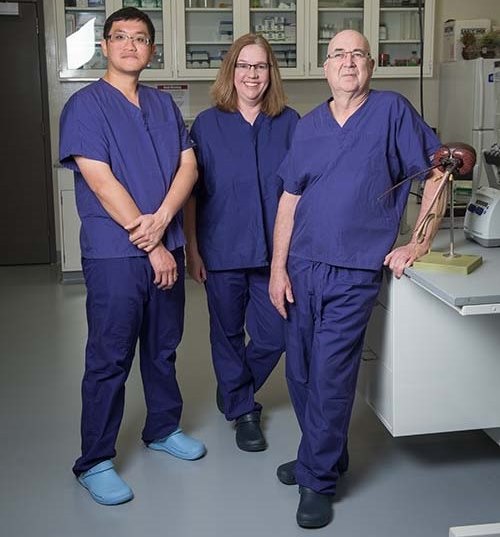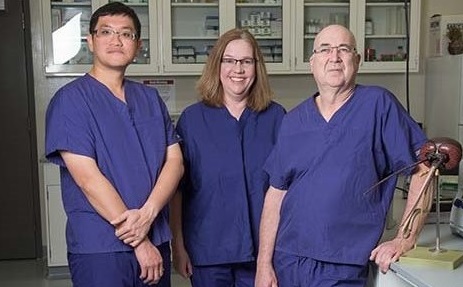
A group of Kansas State University scientists have received the international BIAL Award in Biomedicine for a publication focused on mRNA technology, now used in the two federally approved vaccines to prevent COVID-19.
The nearly $340,000 award aims to distinguish a work in biomedicine of exceptional quality and scientific relevance. It recognizes an important breakthrough of a technology for vaccine creation, published in 2017, that describes the complex work to engineer an mRNA vaccine to treat a disease, and demonstrates its efficacy in mice and monkeys.
The technology investigated by this team uses a synthetic mRNA to allow the body to prepare itself against the disease. To do so, it uses an mRNA that makes the body’s own cells synthesize a viral protein that stimulates the body’s immune response.
Biosecurity Research Institute (BRI) Director Dr. Stephen Higgs and two professors from the College of Veterinary Medicine, were among 36 co-authors on the research. The other K-State professors included Yan-Jang “Scott” Huang and Dana Vanlandingham, who work in the area of arbovirology.
This information was included in Tuesday’s edition of K-State Today. Read the full article here.



